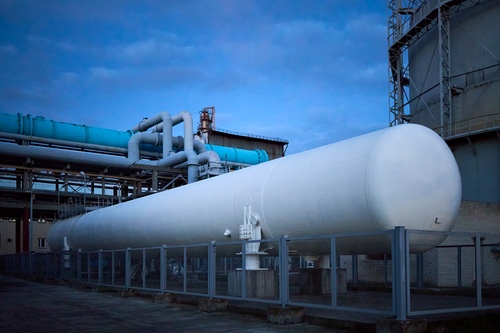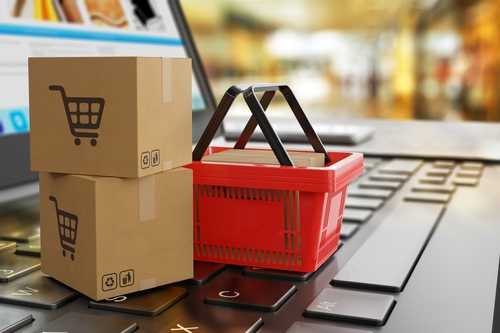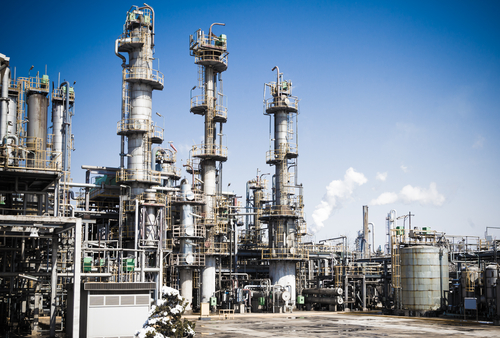South Korea still depends heavily on imported robot components
Business Korea reports new statistics showing that the country remains heavily dependent on imports of robot components. Many components for the robotics industry are provided with f.e. KC certifications and KCs certifications by foreign manufacturers according to K standards in order to obtain market access for South Korea, and are imported accordingly. Analysing data from 2018, the report found that 57 per cent of robots used in manufacturing and services were imported components. Although South Korea can claim the highest number of robots per 10,000 workers, its dependence on imported components has only slightly decreased from 60 per cent in 2016, Lee Sung-man said. The country is particularly dependent on components for factory robots, at 61.1 per cent. The supply of domestically produced components is 14.8 per cent for motors, 24.3 per cent for software and 24.9 per cent for sensors. For robots in the business services sector and in the private sector, the dependence on imported components is 56.3 and 53.5 per cent, respectively. On average, servo motors and decelerators, which normally account for the largest share of robot costs, are 29.6 per cent sourced from Korea. The South Korean market for robot components was US$119.8 million for exports and US$181.8 million for imports in 2019.
South Korea is considered one of the most important and innovative industrial nations in the world. To gain market access to this highly technological country, products imported into South Korea must be tested and certified. The KC mark or certificate is roughly equivalent to the European CE mark and applies to 730 different products. MPR International GmbH has solid experience in Korea certification and competent local partners. We will be pleased to advise you without obligation about the scope and procedure of a Korea certification.
If you need assistance or have any questions regarding Korean certifications like KC, KC EMC, KCs or KCs for explosion safety products, feel free to contact us any time.
Tel.: +49-69-2713769259
Email: info@korea-certification.com
Urgent questions?
Please do not hesitate to contact us via chat. You will find the chat window at the bottom right of each page (if this is not visible, please check your browser settings).
For more information you can download our free brochure “Korea Certification Made Easy – The Booklet“.
The country is particularly dependent on components for factory robots, at 61.1 per cent. The supply of domestically produced components is 14.8 per cent for motors, 24.3 per cent for software and 24.9 per cent for sensors. For robots in the business services sector and in the private sector, the dependence on imported components is 56.3 and 53.5 per cent, respectively. On average, servo motors and decelerators, which normally account for the largest share of robot costs, are 29.6 per cent sourced from Korea. The South Korean market for robot components was US$119.8 million for exports and US$181.8 million for imports in 2019.
South Korea is considered one of the most important and innovative industrial nations in the world. To gain market access to this highly technological country, products imported into South Korea must be tested and certified. The KC mark or certificate is roughly equivalent to the European CE mark and applies to 730 different products. MPR International GmbH has solid experience in Korea certification and competent local partners. We will be pleased to advise you without obligation about the scope and procedure of a Korea certification.
If you need assistance or have any questions regarding Korean certifications like KC, KC EMC, KCs or KCs for explosion safety products, feel free to contact us any time.
Tel.: +49-69-2713769259
Email: info@korea-certification.com
Urgent questions?
Please do not hesitate to contact us via chat. You will find the chat window at the bottom right of each page (if this is not visible, please check your browser settings).
For more information you can download our free brochure “Korea Certification Made Easy – The Booklet“.
Hyosung Group and Linde Korea to build hydrogen plant in Ulsan
The groundbreaking ceremony for the hydrogen liquefaction plant took place on 21 June in Ulsan with the participation of the two partners, Hyosung Heavy Industries and Linde Korea. In attendance were the chairmen of Hyosung and Linde, as well as the mayor of Ulsan city and Korea’s vice minister of trade. During the ceremony, Hyosung and Linde spoke of their shared vision to create a CO2-neutral South Korea through the application of hydrogen technology. Linde Hydrogen Energy, a joint venture between Hyosung and Linde, is responsible for the construction of the plant. When completed, the plant, which will be the largest of its kind in the world, will have a capacity of 13,000 tonnes of liquid hydrogen and is scheduled to start operations in 2023. In addition, Hyosung Heavy Industries will invest the equivalent of around 858 million US dollars in the expansion of liquid hydrogen production capacities over the next five years. A capacity of 39,000 tonnes of liquid hydrogen has been named as the target. Such large-scale projects are supported by extended supply chains; components, equipment and machinery are largely imported internationally. When imported, many products must have KGS factory registration or KCs certification for explosion-proof products to be approved under Korean regulations.

South Korea is considered one of the most important and innovative industrial nations in the world. To gain market access to this highly technological country, products imported into South Korea must be tested and certified. The KC mark or certificate is roughly equivalent to the European CE mark and applies to 730 different products. MPR International GmbH has solid experience in Korea certification and competent local partners. We will be happy to advise you on the scope and procedure of a Korea certification without obligation.
If you need assistance or have any questions regarding Korean certifications like KC, KC EMC, KCs, KGS factory registration or KCs for explosion safety products, feel free to contact us any time.
Tel.: +49-69-2713769259
Email: info@korea-certification.com
Urgent questions?
Please do not hesitate to contact us via chat. You will find the chat window at the bottom right of each page (if this is not visible, please check your browser settings).
For more information you can download our free brochure “Korea Certification Made Easy – The Booklet“.
Coupang’s revenue up by more than 50 per cent
US-listed e-commerce giant Coupang Inc recently reported its highest-ever quarterly revenue. On 12 August, the company, which is also known as the “Amazon of South Korea”, reported that its revenue reached US$4.48 billion in the second quarter of this year. Compared to the same period last year, this represents an increase of 71 per cent. Coupang’s revenue has grown steadily by at least 50 per cent for 15 consecutive quarters since the third quarter of 2017. Analysts relate the strong growth to both rising active customer numbers and higher average spend per customer. The number of active customers reached 17 million last quarter, up 26 per cent from the first quarter of 2021, while the average spend per customer was $263 in the second quarter, up 36 per cent from the previous quarter. Among the most successfull product categories were electronics, appliances and clothing. Many products, especially in the electronics category, need mandatory KC certification in order to be allowed to be sold and used on the Korean market.

Coupang is a South Korean e-commerce company based in Seoul, as well as a subsidiary in Delaware, US. Founded in 2010, the company rose to become the largest online marketplace in South Korea through expansion. As part of the expansion of its business areas, the video streaming service Coupang Play was founded. Due to the company’s position in the market and size, Coupang is also often referred to as the “Amazon of South Korea”. To grow further in online retail, Coupang invested a total of US$120 million in fresh food delivery and food delivery service Coupang Eats during the second quarter. Through the integration and strong growth of these businesses, Coupang hopes to save on fixed costs and, as a result, offer customers attractive prices for the goods and services.
South Korea is considered one of the most important and innovative industrial nations in the world. To gain market access to this highly technological country, products imported into South Korea must be tested and certified. The KC mark or KC certificate is roughly equivalent to the European CE mark and applies to 730 different products. MPR International GmbH has solid experience in Korea certification and competent local partners. We will be pleased to advise you without obligation about the scope and procedure of a Korea certification.
If you need assistance or have any questions regarding Korean certifications like KC, KC EMC, KCs or KCs for explosion safety products, feel free to contact us any time.
Tel.: +49-69-2713769259
Email: info@korea-certification.com
Urgent questions?
Please do not hesitate to contact us via chat. You will find the chat window at the bottom right of each page (if this is not visible, please check your browser settings).
For more information you can download our free brochure “Korea Certification Made Easy – The Booklet“.
LG Chem invests US$8.7 billion in batteries as well as renewable and biological materials
South Korea’s leading chemical manufacturer, LG Chem Ltd, announced in mid-July that it would invest around 8.7 billion US dollars in battery materials as well as the renewable and bio sector to expand its business activities in the “green” sector. The company also announced that it is intensively looking for partners, acquisition candidates and joint ventures to achieve sustainable growth in the aforementioned three growth markets. LG Chem Vice Chairman Shin Hak-cheol said during an online press conference about the investment plans that they are no longer a traditional petrochemical company. Instead, he wants to turn LG Chem into a material and raw material manufacturer and open up new growth markets. To achieve this, he said, the company will orient its business units towards sustainable growth, using the so-called ESG standards. Equipment for processing of raw materials is an increasingly growing market in Korea. Introduction of corresponding components and products in many cases require KC certification or also KCs certification for explosion-proof products (also called KOSHA).

Hak-cheol went on to say that more than 30 joint venture and acquisition projects were currently in the pipeline and that his company expects to report significant progress as early as the second half of this year. LG’s announcement follows a whole wave of business in South Korea to accelerate their efforts to transform into green businesses. Back in early July, SK Innovation Co, a petroleum and batteries company, said it would invest about $26.5 billion in green projects by 2025. Lotte Chemical Corp. is investing US$3.78 billion in hydrogen projects as a new business while turning away from its main petrochemicals business.
Regarding LG Chem’s latest announcement, it will invest about 5.15 billion US dollars in the e-mobility sector through its subsidiary LG Energy Solution Ltd. This will involve expanding production facilities for battery materials including cathodes, separators and carbon nanotubes (CNTs). LG expects the market for battery-related materials to increase threefold to 85 billion US dollars by 2026. LG will invest another US$5.78 billion in biotechnology, recycling and renewable materials. LG Chem’s pharmaceutical division also has promising candidates in development for the treatment of diabetes and cancer. The funds for all these investments will be raised through South Korea’s largest-ever IPO. Later this year, LG Energy Solutions is to be floated on the stock market for more than 8.58 billion US dollars. LG Chem will remain the majority shareholder with 70 to 80 percent of the shares.
South Korea is considered one of the most important and innovative industrial nations in the world. In order to gain market access to this highly technological country, products imported into South Korea must be tested and certified. The KC mark or certificate is roughly equivalent to the European CE mark and applies to 730 different products. MPR International GmbH has solid experience in Korea certification and competent local partners. We will be happy to advise you on the scope and procedure of a Korea certification without obligation.
If you need assistance or have any questions regarding Korean certifications like KC, KC EMC, KCs or KCs for explosion safety products, feel free to contact us any time.
Tel.: +49-69-2713769259
Email: info@korea-certification.com
Urgent questions?
Please do not hesitate to contact us via chat. You will find the chat window at the bottom right of each page (if this is not visible, please check your browser settings).
For more information you can download our free brochure “Korea Certification Made Easy – The Booklet“.


